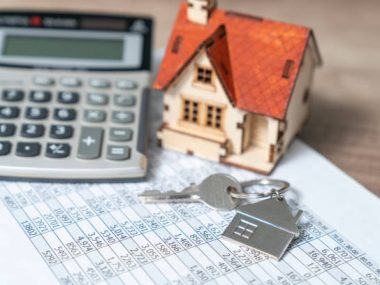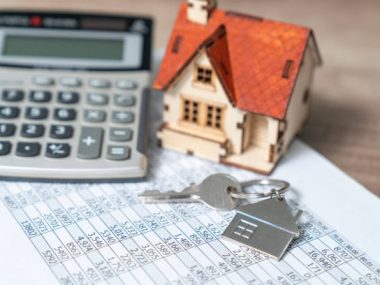What is a purchase-money mortgage? In the world of real estate and home financing, the term “purchase-money mortgage” stands as a fundamental concept that plays a pivotal role in enabling individuals to make their dreams of homeownership a reality.
Whether you’re a first-time homebuyer or a seasoned investor, understanding the intricacies of a purchase-money mortgage is essential.
This financial arrangement forms the cornerstone of many property acquisitions, allowing buyers to secure the funds needed to purchase a home.
In this article, we’ll delve into the core components of a purchase-money mortgage.
So, let’s embark on a journey to demystify the concept of a purchase-money mortgage and equip you with the knowledge to navigate the world of property ownership with confidence.
Also Read:
Can I Get a Mortgage with Bad Credit in Canada?
Do You Still Pay a Mortgage Lender If They Go Bankrupt?
What Is a Purchase-Money Mortgage?
A purchase-money mortgage is a financing arrangement commonly used in real estate transactions, where the seller provides the buyer with a loan to facilitate the purchase of the property.
Unlike traditional mortgages offered by financial institutions, a purchase-money mortgage involves the seller acting as the lender.
In this setup, the buyer pays a down payment and borrows the remaining amount from the seller.
The property itself serves as collateral for the loan. This type of mortgage offers benefits to both parties.
For buyers, it can provide easier qualification requirements and lower closing costs compared to traditional mortgages.
Sellers benefit from attracting a larger pool of potential buyers and potentially selling the property faster.
Purchase-money mortgages are prevalent in scenarios where buyers may have difficulty securing financing through conventional means, such as first-time homebuyers or those with less-than-perfect credit.
However, terms can vary widely, including interest rates and repayment schedules, depending on negotiations between the buyer and seller.
Understanding the intricacies of purchase-money mortgages is crucial for anyone looking to enter the real estate market, as it offers an alternative route to property ownership with its own set of advantages and considerations.
Key Features of Purchase-Money Mortgages
Purchase-money mortgages come with distinctive features that set them apart from traditional mortgage arrangements.
Firstly, these mortgages involve the seller of the property acting as the lender, offering a loan to the buyer to finance the purchase.
This creates a direct financial relationship between the two parties.
The down payment required for a purchase-money mortgage can be negotiable and often tends to be lower than the down payment required by traditional lenders.
This can make homeownership more accessible, especially for first-time buyers or those with limited funds.
Interest rates and repayment terms can also be more flexible, as they are subject to negotiations between the buyer and the seller.
This adaptability can be advantageous for buyers seeking terms that better suit their financial situation.
Furthermore, purchase-money mortgages are typically used in transactions involving residential properties, such as homes and condominiums.
The property itself serves as collateral, and if the buyer defaults on the loan, the seller can potentially reclaim ownership of the property through legal means.
Overall, the key features of purchase-money mortgages include seller financing, negotiable down payments, flexible interest rates, and property-based collateral.
These features make purchase-money mortgages an attractive option for buyers and sellers seeking alternatives to conventional mortgage arrangements.
Benefits and Drawbacks of Purchase-Money Mortgages
Purchase-money mortgages offer distinct advantages and drawbacks for both buyers and sellers.
One significant benefit is their potential to broaden the pool of eligible buyers, particularly those with lower credit scores or limited access to traditional financing.
Buyers can benefit from lower down payment requirements and more flexible terms negotiated directly with the seller.
However, drawbacks exist too. Sellers assume the role of lenders, potentially facing risks if buyers default.
Additionally, sellers might miss out on a lump-sum payment, and the process can be more complex due to negotiations.
Buyers could face higher interest rates compared to traditional loans, depending on the seller’s terms, impacting long-term affordability.
While purchase-money mortgages can bridge financing gaps for some, thorough consideration of individual circumstances, negotiation skills, and understanding the potential long-term financial implications are crucial before opting for this arrangement.
Application and Qualification Process for Purchase-Money Mortgages
The application and qualification process for purchase-money mortgages follows a distinct path due to the involvement of the seller as the lender.
Prospective buyers interested in this arrangement typically begin by expressing their intent to the seller.
The seller then assesses the buyer’s financial capability, often considering factors such as creditworthiness, income stability, and debt-to-income ratio.
Unlike traditional lenders, purchase-money mortgage qualification criteria can be more flexible since the seller has the discretion to set terms based on their comfort level.
Buyers may still need to provide financial documentation to demonstrate their ability to repay the loan.
Negotiations then occur regarding the down payment, interest rates, and repayment schedule.
Upon reaching an agreement, the seller drafts a purchase-money mortgage agreement detailing the terms.
Legal professionals may be involved to ensure the agreement complies with local laws and regulations.
The buyer signs both the mortgage agreement and the property’s title transfer documents.
While the process offers flexibility, buyers should approach it with care.
A thorough understanding of the terms, potential risks, and a clear grasp of their financial capacity are vital.
Conversely, sellers must evaluate buyer qualifications prudently to mitigate potential default risks.
Overall, while the application and qualification process of purchase-money mortgages differs from traditional loans, it’s essential for both parties to communicate effectively and consider professional advice to ensure a smooth and mutually beneficial transaction.
Also Read:
Can You Roll Closing Costs into Mortgage?
Can You Defer a Mortgage Payment?
Conclusion
A purchase-money mortgage stands as a unique and flexible pathway to homeownership, where sellers extend financing directly to buyers.
This arrangement opens doors for individuals who might face challenges with traditional mortgage routes, offering accessible down payments and negotiable terms.
However, it’s crucial for both buyers and sellers to navigate this process carefully, understanding its benefits, risks, and legal implications.
Whether aiming to widen the buyer base or seeking an alternative to conventional lending, grasping the dynamics of purchase-money mortgages empowers individuals to make informed decisions in the intricate realm of real estate transactions.
As with any financial commitment, thorough research, transparent communication, and professional guidance are key to realizing the full potential of purchase-money mortgages.






